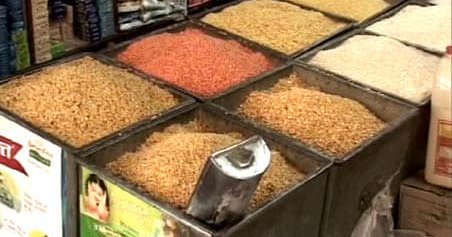Scientist says India can increase production of 'arhar dal' three times
The pigeonpea (Cajanus cajan) is a major source of protein for the population of the Indian subcontinent.

- Country:
- India
India, the world's largest producer of pigeonpea or 'arhar dal', could increase the production of the grain by three times, say scientists who are working on creating varieties resistant to diseases and climate change.
The pigeonpea (Cajanus cajan) is a major source of protein for the population of the Indian subcontinent.
Pre-breeding scientists at the International Crops Research Institute for the Semi-Arid Tropics (ICRISAT) are exploring possible solutions sourced from the wild species of Cajanus.
A project funded by the Global Crop Diversity Trust (GCDT), will evaluate promising pre-breeding lines in India and Myanmar, bringing them one step closer to cultivation.
"It is critical to bring in beneficial traits that are not present in domesticated pigeonpea, and the pre-breeding work at ICRISAT holds great promise," said Benjamin Kilian, Plant Genetic Resources Scientist from the GCDT.
"Our goal of increasing the livelihood and nutrition security of smallholder farmers moves forward, and pre-breeding has hastened the process of reaching better crop varieties to farmers," said Peter Carberry, Director General, ICRISAT.
It has taken several years of research for scientists to evaluate wild pigeonpea species and identify those with the promise of resistance/tolerance to biotic and abiotic stresses, including sterility mosaic disease, Fusarium wilt, pod borer and salinity.
"Pigeonpea has a narrow genetic base. The varieties currently grown by farmers have little resilience to recurrent or new diseases and insect pests," said Shivali Sharma, Principal Investigator at ICRISAT.
"We find some wild species have adapted to several of these stresses. Leveraging these traits for cultivation can benefit livelihoods and nutrition," said Sharma.
"This project will develop new material as well as take the available material to the farmers so that they can produce more and generate better incomes with the new climate-resilient pigeonpea varieties," said Rajeev K Varshney, Research Program Director - Genetic Gains at ICRISAT.
Field-level activities in multiple agro-ecologies and socio-economic settings (different locations) will be carried out by ICRISAT in collaboration with the following national and international partners.
The two-year project holds promise to improve livelihoods and nutrition security of the most- at-need communities in south-east Asia and in Africa.
(With inputs from agencies.)
- READ MORE ON:
- Mi India
- Air India
- The Times of India
- India A cricket team
- State Bank of India
- India national cricket team
- President of India
- States of India
- Government of India
- Culture of India
- Aviation in India
- Constitution of India
- Skill India
- Outline of ancient India
- Air India Express
- Survey of India
- India International Centre
- Vice President of India
- Reserve Bank of India
- Prime Minister of India








